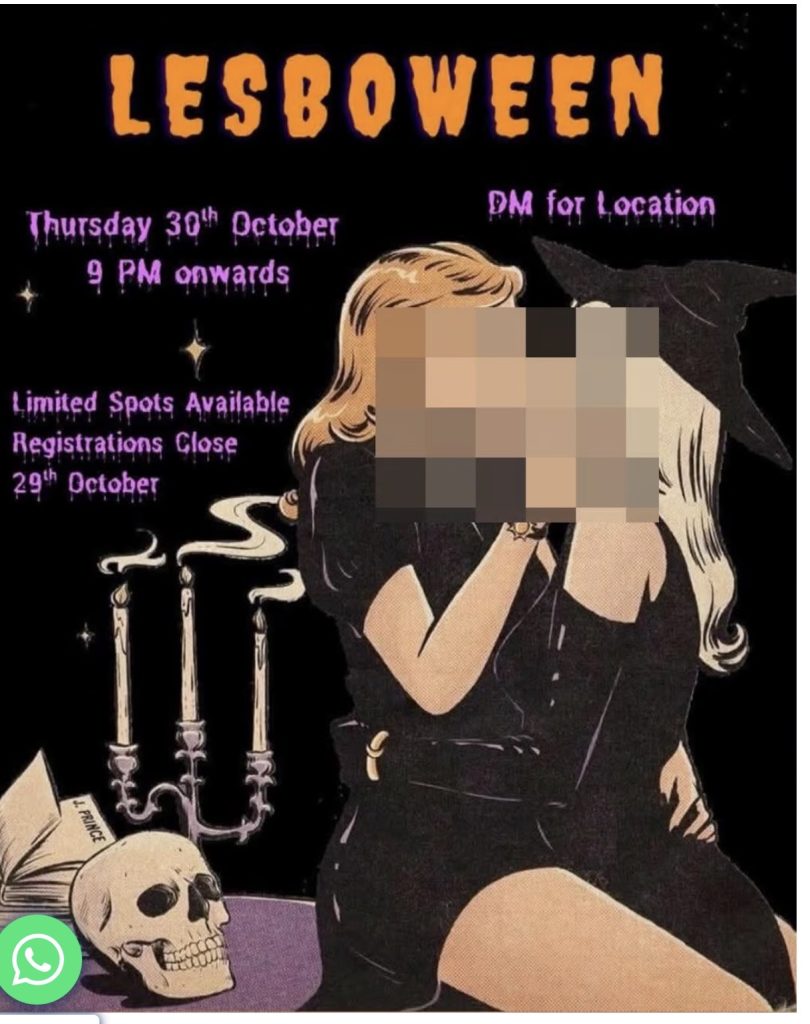A Society in Dimmed Light-Karachi’s “Lesboween Day” and the Echo of Surah Lut
By Raja Zahid Akhtar Khanzada
I have lived in the United States for the past twenty five years. I have watched the colors of civilizations shift, felt cultures rise and fade, and observed the world’s moral tides from up close. Yet a single story that surfaced on social media from Pakistan struck me with the force of an unexpected storm. Karachi marked a day called Lesboween Day on the thirtieth of October. It was not just another online post. It was a tremor that travelled thousands of miles and reached my heart with a new set of questions about the direction we are heading and the kind of light we claim to follow while letting shadows spread in our homes.
The city’s evening has never felt as muted as it does today. It is as if the light itself has stepped back in embarrassment. As if the sky, sensing the exhaustion of our collective character, has withdrawn its glow. This is the moment when a person looks at their own society and instinctively turns their gaze away. When the lamps of goodness begin to go out and nature stands before us as a question that refuses to be ignored.
When I looked deeper into the story, a detailed report published by Pakistan Observer added an even heavier weight to the matter. According to the report, a secret invitation was making rounds on Facebook under the title Lesboween. It was presented as a Halloween celebration but participation was restricted to girl couples and individuals with same sex preferences. The invitation mentioned the date and time but deliberately hid the venue to avoid legal consequences. Interested individuals were told that the location and other details would be sent privately and that limited slots required urgent registration. The poster featured two women kissing, an image that ignited widespread outrage across social media. Users demanded action from provincial authorities, yet no official department has made any statement. The rise of such secretive events in a city like Karachi is not just a challenge to thought, it is a sign that a new cultural current is seeping into society from the unseen passages below the surface.
The Quran’s Surah Lut has long been cited as a story of moral warning, but it no longer belongs to a distant chapter of history. It stands at our doorstep today. Its verses are not directed toward an ancient nation anymore, they testify to the unraveling of the modern human condition. The path once taken by the people of Lut now casts its shadow on the walls of our cities.
Western societies have changed their laws. Freedom of expression and action has formed a steel circle that few can openly challenge. Any stance against the direction they have chosen becomes a violation of the very principles they uphold. But the troubling part is the silence with which these colors are settling into Pakistani society, as though a soundless current has entered our veins. The Lesboween celebration in Karachi, attended by girl couples from across the country, was not a festival. It was a prophecy of the future. A future that our cultural and spiritual foundations may not be prepared to carry.
Such trends often emerge from Punjab, then spread without pause across the entire nation. Fashion, social behaviors and new cultural rituals are born there before becoming nationwide realities. Once, friendships between girls were regarded as the safest bond. Now even that innocence has been pulled into question. The march of Western culture does not knock on doors. It does not request permission. It silently slips through walls and takes root in the innermost corners of the mind.
The first guardian of a society has always been the family, yet today that very foundation is under attack. For parents, this is a moment of awakening. The simplicity that once formed trust between young girls is now being reshaped by an environment that is increasingly uncertain. Nature created the pairing of man and woman. Through this pairing generations continued, society remained balanced, and the world sustained its order. The Quran honors this natural structure and places human well being within its boundaries.
Surah Lut is not merely a narrative. It is a mirror. It reveals what happens when humanity tears away from nature’s line. The cries that rose over the fate of the people of Lut were not only echoes of the past. They are alive even today. It is only we who have shut the doors of hearing. We think these changes are unfolding somewhere else, yet the smoke is beginning to gather on the roofs of our own homes.
Society has changed and continues to change. But the real question is not whether change is arriving. The question is whether we understand it or surrender to it. Are we allowing our children to walk paths they do not choose with awareness but drift toward under the current of their surroundings. Is this silence a failure of our collective conscience or an admission of our exhaustion.
On the map of the world, every nation reaches a moment when it must decide whether to keep its path straight or let the wind decide its destination. Today Pakistan stands at that crossroads. Our values, our religious identity, our family structures and our future generations wait for the decision we will make.
The story of Surah Lut rises again today as a reminder that the line of nature never fades. Whoever steps past it never reaches the destination they seek. This is what history tells us. And history has never been known to lie.




